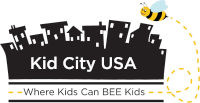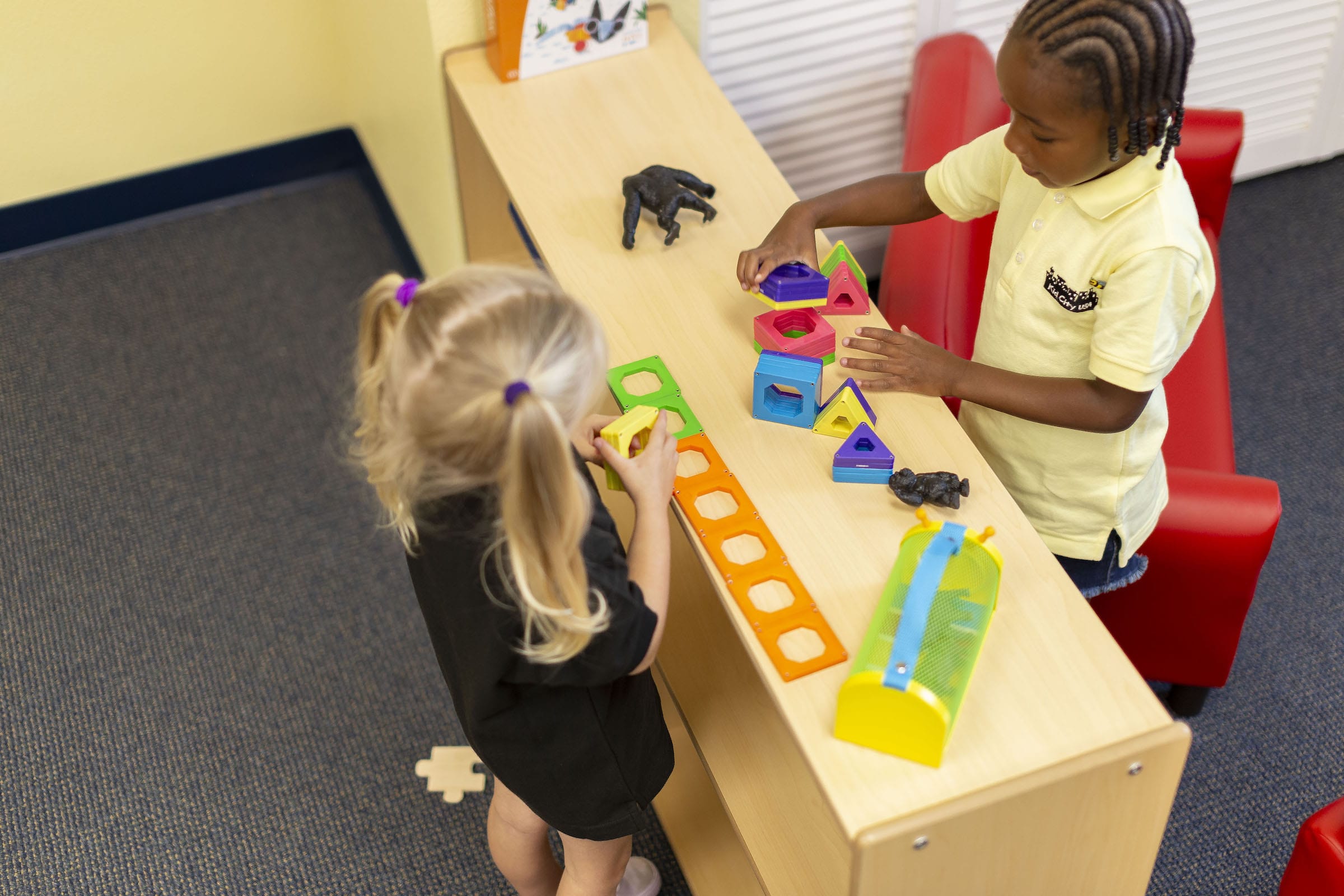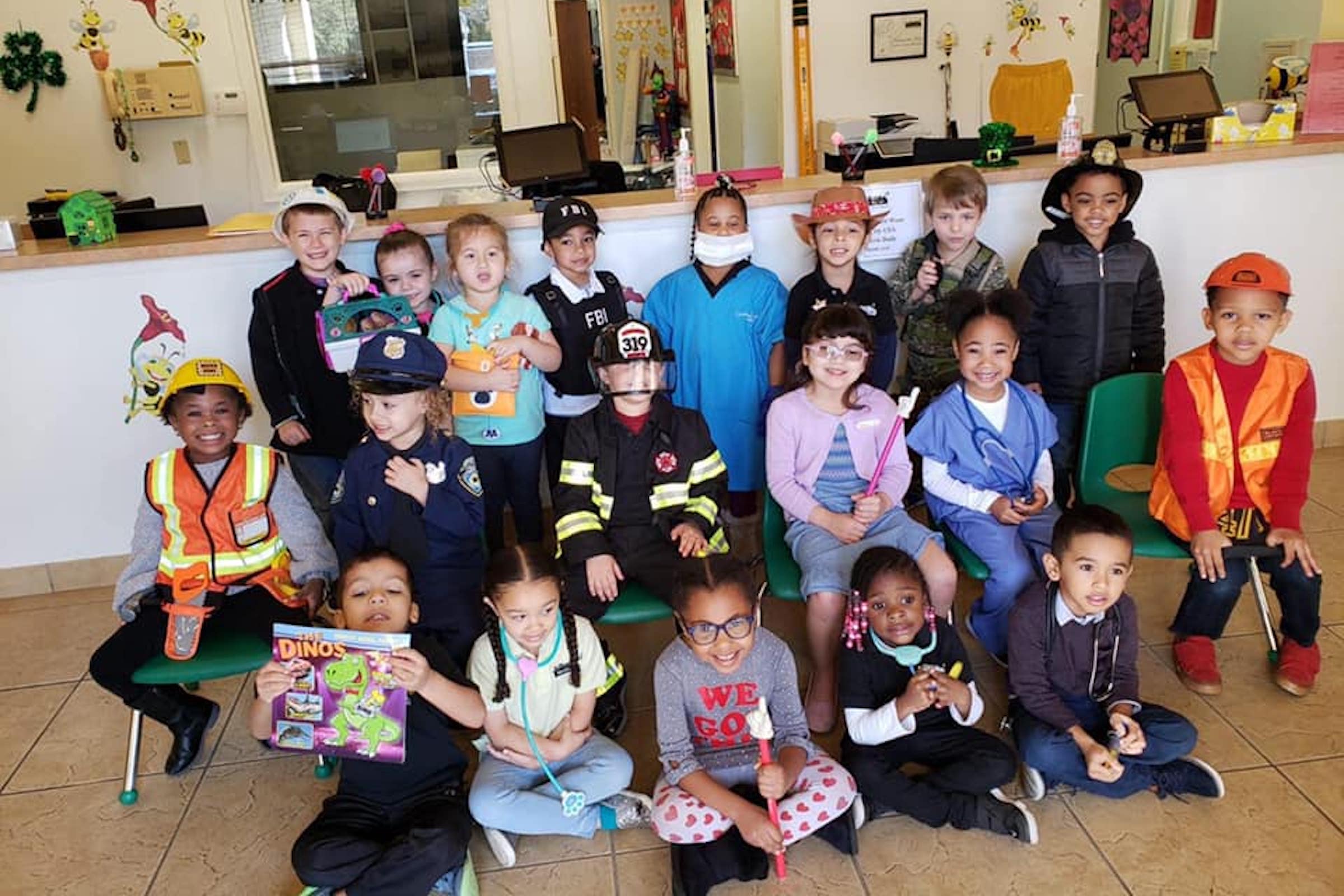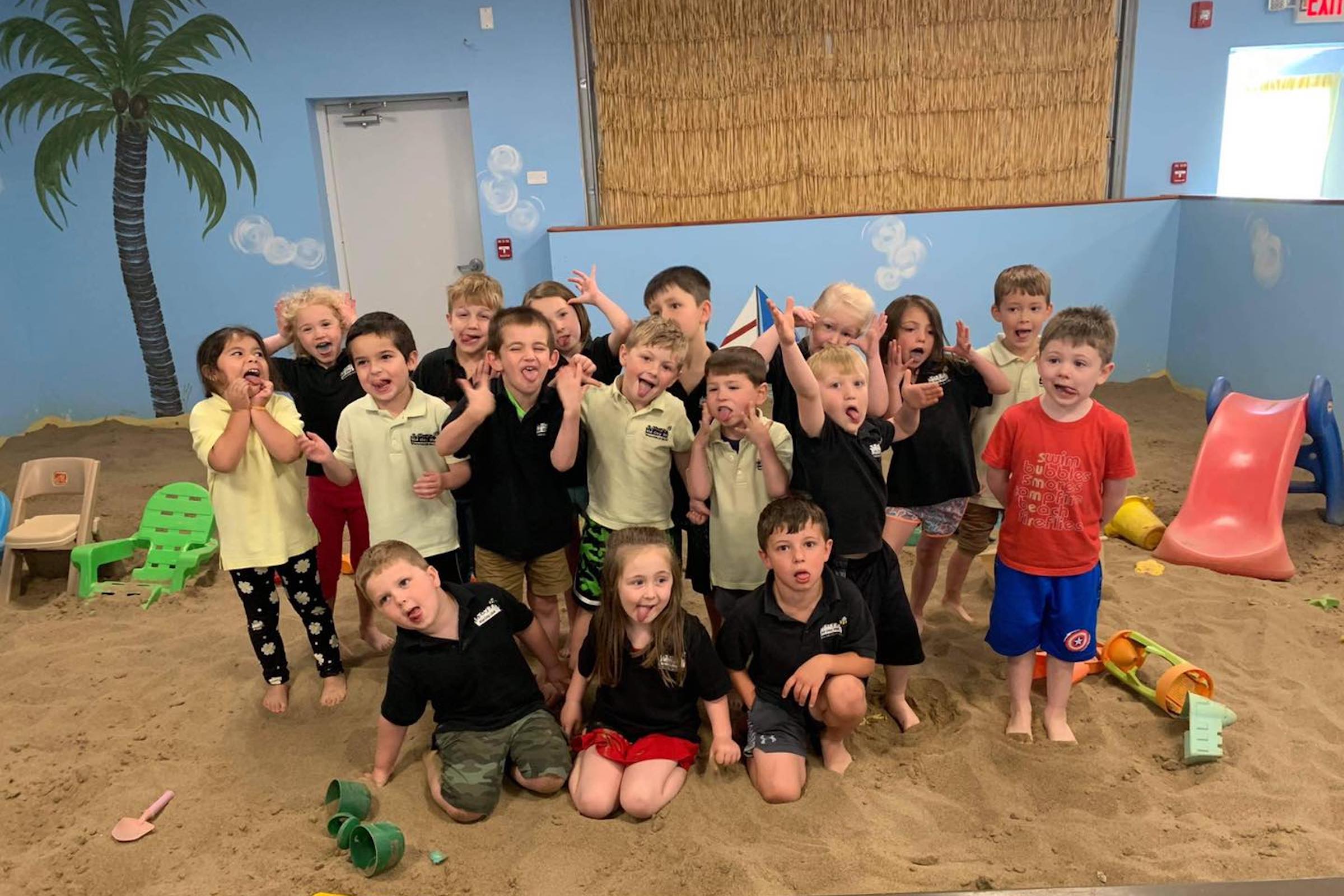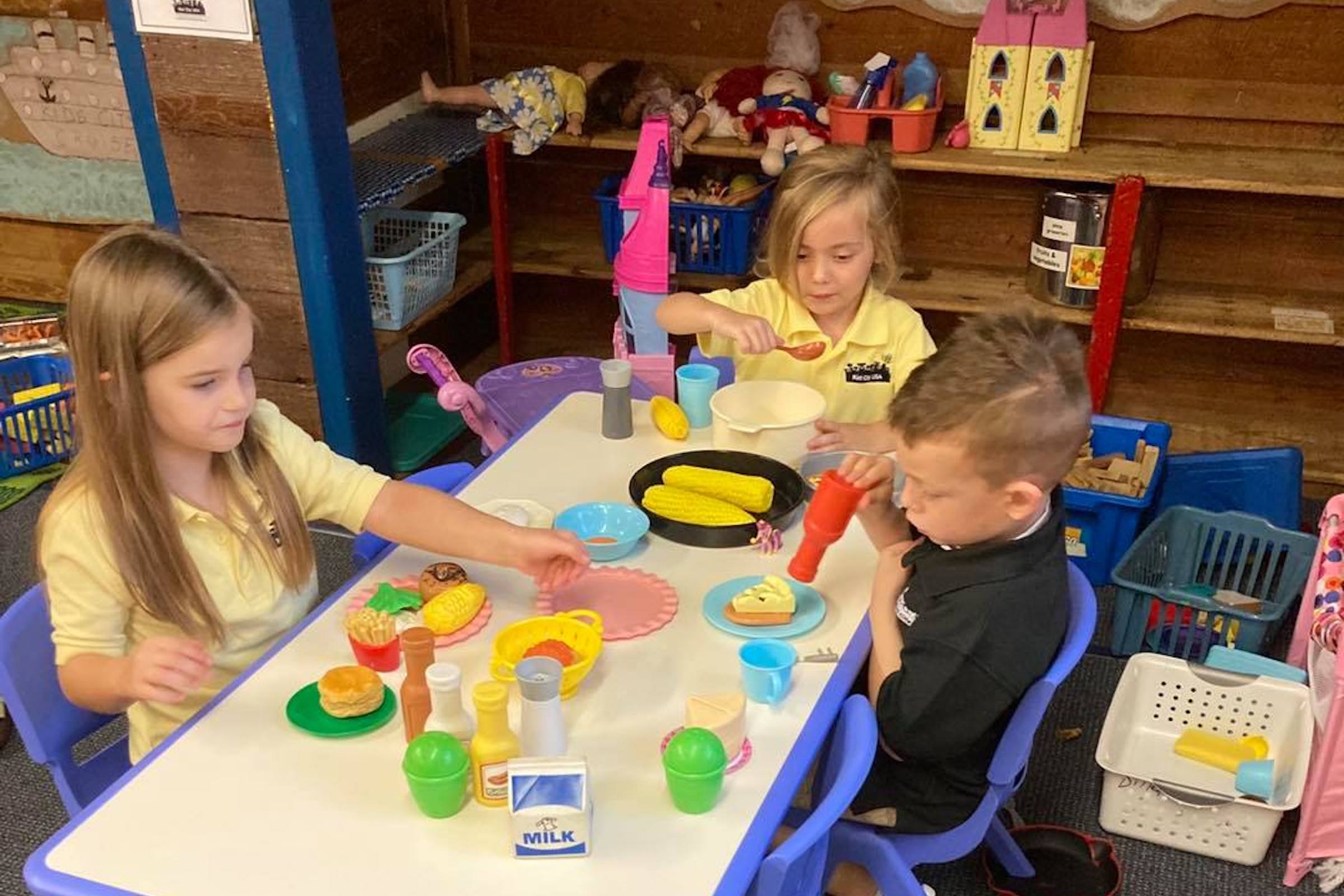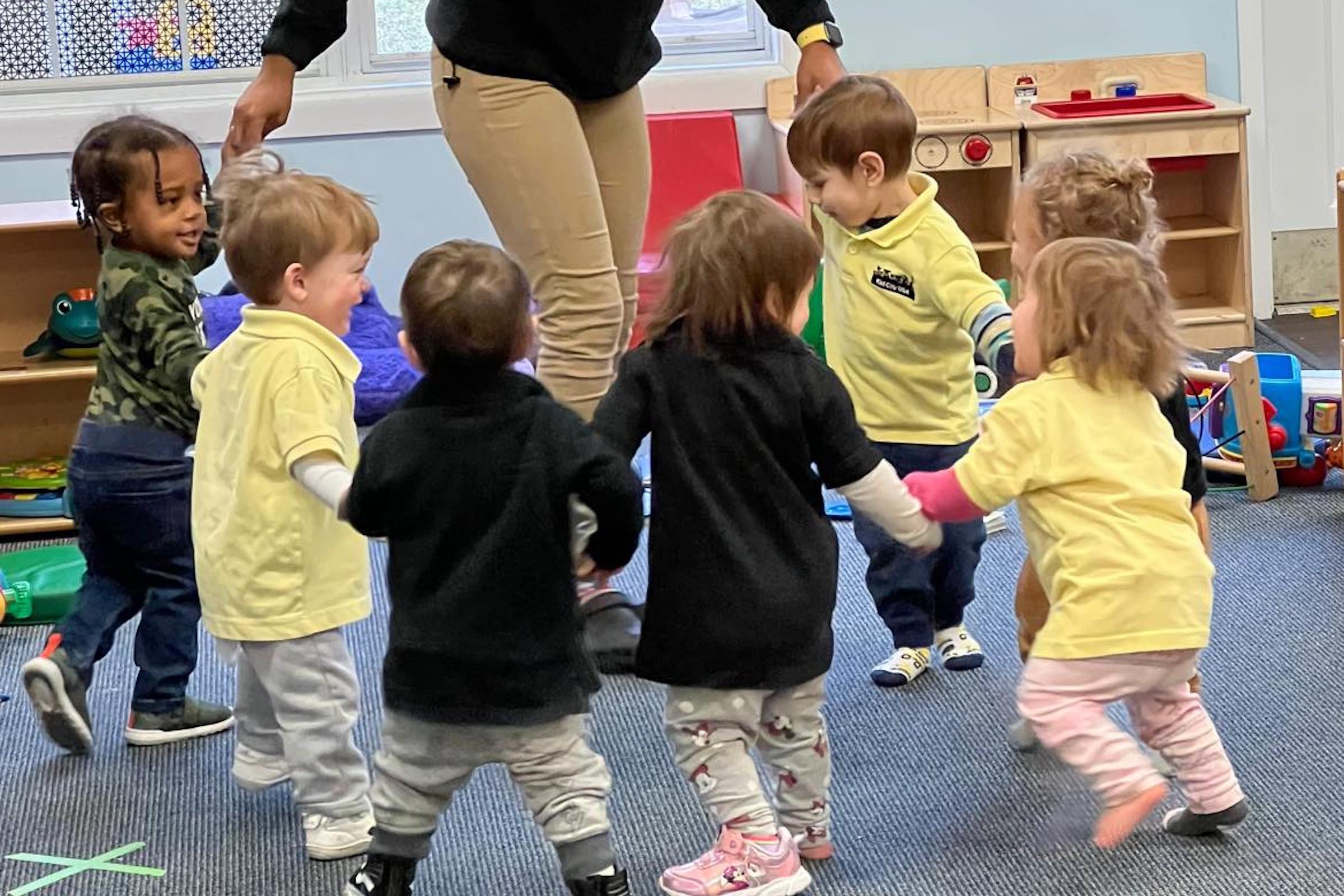The importance of early childhood education cannot be overstated. Why is early childhood education so important for our little ones? A large part of critical brain development in children happens before they even start kindergarten. It impacts everything from school performance to lifelong social skills.
Did you know children who are behind in kindergarten are more likely to fall behind for their entire educational experiences? The experts’ message is clear — children who attend preschool are more prepared for kindergarten than those who don’t.
Parents who are on the fence about enrolling their little ones in a preschool program shouldn’t hesitate. Early childhood development programs are an investment in your child’s future, not a cost. There are many high-quality and affordable childcare options out there that could be an excellent fit for your family.
Read on to learn everything you need to know about the importance of early childhood education.&amp;amp;amp;amp;amp;amp;amp;amp;amp;amp;amp;amp;amp;amp;amp;amp;amp;amp;amp;amp;amp;amp;amp;amp;amp;amp;amp;amp;amp;amp;amp;amp;amp;amp;amp;amp;amp;amp;amp;amp;amp;amp;amp;amp;amp;amp;amp;amp;amp;amp;amp;amp;amp;amp;amp;amp;amp;amp;amp;amp;amp;amp;amp;amp;amp;amp;amp;amp;amp;amp;amp;amp;amp;amp;amp;amp;amp;amp;amp;amp;amp;amp;amp;amp;amp;amp;amp;amp;amp;amp;amp;amp;amp;amp;amp;amp;amp;amp;amp;amp;amp;amp;amp;amp;amp;amp;amp;amp;amp;amp;amp;amp;amp;amp;amp;amp;amp;amp;amp;amp;amp;amp;amp;amp;amp;amp;amp;amp;amp;amp;amp;amp;amp;amp;amp;amp;amp;amp;amp;amp;amp;amp;amp;amp;amp;amp;amp;amp;amp;amp;amp;amp;amp;amp;amp;amp;amp;amp;amp;amp;amp;amp;amp;amp;amp;amp;amp;amp;amp;amp;amp;amp;amp;amp;amp;amp;amp;amp;amp;amp;amp;amp;amp;amp;amp;amp;amp;amp;amp;amp;amp;amp;amp;amp;amp;amp;amp;amp;amp;amp;amp;amp;amp;amp;amp;amp;amp;amp;amp;amp;amp;amp;amp;amp;amp;amp;amp;amp;amp;amp;amp;amp;amp;amp;amp;amp;amp;amp;amp;amp;amp;amp;amp;amp;amp;amp;amp;amp;amp;amp;amp;amp;amp;amp;amp;amp;amp;amp;amp;amp;amp;amp;amp;amp;amp;amp;amp;amp;amp;amp;amp;amp;amp;amp;amp;amp;amp;amp;amp;amp;amp;amp;amp;amp;amp;amp;amp;amp;amp;amp;amp;amp;amp;amp;amp;amp;amp;amp;amp;amp;amp;amp;amp;amp;amp;amp;amp;amp;amp;amp;amp;amp;amp;amp;amp;amp;amp;amp;amp;amp;amp;amp;amp;amp;amp;amp;amp;amp;amp;amp;amp;amp;amp;amp;amp;amp;amp;amp;amp;amp;amp;amp;amp;amp;amp;amp;amp;amp;amp;amp;amp;amp;amp;amp;amp;amp;amp;amp;amp;amp;amp;amp;amp;amp;amp;amp;amp;amp;amp;amp;amp;amp;amp;amp;amp;amp;amp;amp;amp;amp;amp;amp;amp;amp;amp;amp;amp;amp;amp;amp;amp;amp;amp;amp;amp;amp;amp;amp;amp;amp;amp;amp;amp;amp;amp;amp;amp;amp;amp;amp;amp;amp;amp;amp;amp;amp;amp;amp;amp;amp;amp;amp;amp;amp;amp;amp;amp;amp;amp;amp;amp;amp;amp;amp;amp;amp;amp;amp;amp;amp;amp;amp;amp;amp;amp;amp;amp;amp;amp;amp;amp;amp;amp;amp;amp;amp;amp;amp;amp;amp;amp;amp;amp;amp;amp;amp;amp;amp;amp;amp;amp;amp;amp;amp;amp;amp;amp;amp;amp;amp;amp;amp;amp;amp;amp;amp;amp;amp;amp;amp;amp;amp;amp;amp;amp;amp;amp;lt;/p&amp;amp;amp;amp;gt;&amp;amp;amp;lt;/p&amp;amp;gt;</p&amp;gt;
<p>&
;lt;h2>What Is the I</p>
mportance of Early Childhood Education?</h2>
class=”yoast-text-mark”>ef=”https://www.nu.edu/resources/why-is-early-childhood-education-important/” target=”_blank” rel=”noopener noreferrer”>Early childhood education is the time from when a child is born until they start kindergarten.
This time of life is about so much more than learning the necessary skills and preparing for K-12 education. In preschool programs, children learn how to interact with their classmates, teachers, and parents. They also start to discover interests that they hold for a lifetime.
Choosing the right preschool program for your child depends on your family’s needs and location. But, there are key things you want to look for in your child’s early education program. First and foremost, you want to look for quality, approachable teachers.
Programs that provide opportunities to learn art, music, STEM, and stay active are all positive signs of an excellent school.
Socialization: A Key Component to Early Childhood Education
Children who take part in early childhood education programs have improved social skills. In a preschool setting, children learn crucial skills like listening, sharing, and taking turns with others.
In school, pre-school teachers will use songs, games, stories, and more to teach children how to interact. Play is a critical component of learning the social skills necessary to take children through life.
Here are some specific social skills that your child will learn in an early childhood education program.
Children will learn to express their emotions, like happiness, sadness, and anger. They will also work on how to cope with their feelings.
In a group setting, children can work on their listening skills. With numerous children and only a few teachers, they will naturally learn to take turns with others. Circle time is also an excellent structured time for listening and taking turns.
When children attend early childhood education programs, they learn to cooperate with other kids their age. They learn to share and take turns speaking. It is especially important for children who don’t have siblings at home.
Better Academic Performance
Data shows that children who participate in early childhood education perform better when they get to K-12 school.
Children who had access to preschool before starting kindergarten perform better on math and reading. There is a direct correlation between underperformance in school and children who stayed home with parents.
A Harvard study revealed that early childhood education leads to a lower chance of special education placement. It also increases the likelihood of graduating from high school.
Other studies have yielded similar results regarding academic performance and graduation rates. Another study showed that graduation rates were 80 percent for children who attended preschool. Graduation rates were only 60 percent for those children who didn’t have the opportunity to go to preschool.
Love of Lifelong Learning
One of the significant benefits of early childhood education is that it builds a love of learning that lasts well past the preschool years.
In preschool, children’s lessons are presented as fun games and activities. They get to discover all these new things about the world they’re living in. There is also exciting music, art, and toys they don’t have access to at home.
These early exposures inspire children to want to know more. They develop a passion for knowledge that will last them a lifetime.
Improved Self-Esteem and Confidence
When children attend preschool programs, they experience tons of positive reinforcement. They also have positive interactions with their teachers and their classmates.
These early interactions build up children’s self-esteem at an early age. This confidence will carry them throughout life.
Our programs work with each family to build your child’s self-esteem in a positive and loving environment.
Better Attention Span
What is an attention span? An attention span is the ability of a child to pay attention to the task at hand. That often involves blocking things out, like noise or visual stimulus.
Once children start school, one of the most important things they need to succeed is having a developed concentration span. If your child has trouble focusing in school, they will struggle to keep up and miss out on important information.
Attention spans are a challenging issue for many parents, especially while living in the digital age. Children need the help of their parents and their teachers to help them work on concentrating.
Early childhood education programs work on attention spans as part of their learning process. In preschool, children start understanding when it’s time to work and when it’s time to play.
Some parents think that if their child can concentrate while watching TV for a long time, they’re not having issues focusing. This misconception is common among parents.
The truth is that screen time can shorten attention spans. Watching TV doesn’t require concentration. Children are not engaged in the television program; it’s a passive activity.
When children are at home, they’re typically exposed to lengthier amounts of screen time than kids enrolled in pre-school. And who can blame busy parents for giving themselves a much deserved-break by letting their child watch a little TV? Especially parents who are trying to work from home and protect their children during a pandemic.
One of the marvelous things about early childhood education is it’s a designated time for learning when your child is not on screens.
Exposure to Diversity
It just makes sense that children attend early childhood education programs, they are exposed to more diversity in their lives. In school, children are going to have the chance to interact with peers who are different than they are. Whether it’s diversity in race, class, socioeconomic status, or religion, it’s beneficial to the child.
The value of experiencing diversity cannot be understated and will play a crucial role in the future of the world.
Early Childhood Education Provides a Foundation of STEM Skills
In preschool, your child will get an early exposure to Science, Technology, Math, and Engineering, also known as STEM.
Kids can learn about STEM at an incredibly young age, and being exposed to STEM topics early can boost their STEM skills and critical thinking. STEM jobs are in demand and will continue to be in high demand when today’s children enter the workforce.
What parents have time to sit around and google STEM activities every day? Early childhood education programs have a curriculum to do this for you. One day your child might learn about the wind, and another day they may explore gears.
A good program the teachers and tools needed to inspire your children to be curious and explore STEM concepts from an incredibly early age.
Here are some key points regarding STEM and early childhood education for parents to know.
Young children work well on STEM projects when they can do it as a group. Research has shown that children can stay motivated and concentrate on a complicated task for longer when they see other kids doing it.
In early childhood education programs, they emphasize curiosity. Teachers encourage children to ask critical questions like “why,” “what,” and “how.” The positive emphasis on these questions at an early age is key to remaining interested in STEM later in life.
Staying Active and Healthy
Everyone knows that children don’t like to sit still for very long. In recent years, there has been a push to develop curriculums that emphasize learning through movement.
When children attend a school that emphasizes physical activity, they get to learn and stay active simultaneously. Your kids will have access to a structured outdoor time where they can play on the playground or run around and explore nature.
Whether your child is engaging in sports or playing tag with other children, the important thing is they’re getting up and moving. Getting into the habit of being active at an early age is key to building healthy lifelong habits.
Nurturing a child’s mind and body at an early age is key to overall lifetime health.
Early Childhood Education Boosts Creativity
One of the best things about early childhood education programs is giving kids lots of opportunities to get creative and messy. Let’s be realistic; most parents are less than thrilled to get out the messy paints and other arrays of art supplies.
Art projects are a vital component of early childhood education programs. Children can learn about the fall and paint leaves, or make the classic hand turkeys while learning about Thanksgiving. Kids love to paint, make arts and crafts, and get messy.
Another significant part of preschool programs is exposure to music. Kids get to sing, play instruments, and learn about sound at an early age. Music is just as important as things like reading and writing.
Making music, clapping, dancing, and other fun activities can help develop children’s fine motor skills. Singing songs can build brain and body coordination. The skills that children learn while participating in music contribute to the child’s overall brain development.
Early exposure to the arts in early childhood education is just as beneficial as social skills and STEM programs for curious little ones.</p>
<h</p>
2>Benefits That Last a Lifetime&lt;/h2></h2></h2>
<p>The<
/p>
ben<
;p>efits that children gain in preschool programs follow them throughout the rest of their life. Whether it’s going to college or purchasing a home, many lifetime successes link to early access to educational programs.&amp;lt;/p&gt;</p>
<p>Read o
n for some additional data on the&amp;lt;/p&gt;</p>
<p><
p>&lt;p>&amp;lt;ul&amp;lt;/p</p>
<p>&
;gt;
&l
t;p>>
<ul&
gt;
- =”list-style-
type: none;”><ul><li
class=”yo
-
- ast-text-m
ark”>le=”list-style
-
- -type: none;”>
-
- Att
-
end</li>
- “yoast-text-mark”>class=”yoast-text-mark”>e=”list-style-type: none;”><ul></li><li style=”list-style-type: none;”>
-
- <
li style=”list-styl
- e-type: none;”>
-
- ees of ear
ly childhood educat
- ion programs are less likely to commit a felony and go to prison.</li></
ul>
<
-
- ul>
- le=”list-st
- yle-type: none;”><ul><
li class=”
-
- yoast-text
-mark”>lass=”yoast-
- text-mark”>=”list-style-type: none;”><ul></li><li style=”list-style-type: none;”>
-
- <l
i class=”yoast-text
- -mark”>ass=”yoast-text-mark”>”list-style-type: none;”><ul>
<li
>e=”list-style-type
- : none;”><ul><l
i>Children
-
- who atten
d preschool are mor
- e likely to go to college, making them more likely to earn a higher income in their lifetime.</li></
ul>
<
-
- ul>
- le=”list-st
- yle-type: none;”><ul><
li class=”
-
- yoast-text
-mark”>lass=”yoast-
- text-mark”>=”list-style-type: none;”><ul></li><li style=”list-style-type: none;”>
-
- <l
i class=”yoast-text
- -mark”>ass=”yoast-text-mark”>”list-style-type: none;”><ul>
<li
>e=”list-style-type
- : none;”><ul><l
i>People w
-
- ho attende
d early childhood e
- ducation programs are more likely to own their own house later in life. &amp;lt;a class=”yoast-text-mark”>ass=”ef<yoastmark class=”>=”&amp;quot;https://www.huffpost.com/entry/homeownership-as-a-key-driver-of-wealth_b_58f66a5de4b0c89t=”>” rel=”noopener”&gt;=”noopener noreferrer”>>Homeownership</a&gt; is a crucial factor in wealth building.</li></ul
>
<ul
-
- ><u
l>
- =”list-style-
- type: none;”><ul><li
class=”yo
-
- ast-text-m
ark”>le=”list-style
-
- -type: none;”>
-
- The
-
re</li><
li class=”
-
- yoast-text
-mark”>lass=”yoast-
- text-mark”>=”list-style-type: none;”><ul></li><li style=”list-style-type: none;”>
-
- <l
i style=”list-style
- -type: none;”>
-
- is less ch
ance that people wi
ll need government assistance later in life if they attend preschool as a child.This concept supports the argument of investing in education early and saving money in the long run.
- </li></
ul>
<
-
- ul>
- le=”list-st
- yle-type: none;”><ul><
li class=”
-
- yoast-text
-mark”>lass=”yoast-
- text-mark”>=”list-style-type: none;”><ul></li><li style=”list-style-type: none;”>
-
- <l
i class=”yoast-text
- -mark”>ass=”yoast-text-mark”>”list-style-type: none;”><ul>
<li
>e=”list-style-type
- : none;”><ul><l
i>Children
-
- who parti
cipate in early chi
ldhood education programs are less likely to have dependence issues later in life.
- According to the National Survey on Drug Use and Health, almost &lt;a class=”yoast-text-mark”>ss=”yoast-text-mark”>&gt;f=”https://americanaddictioncenters.org/rehab-guide/addiction-statistics”>target=”_blank” rel=”noopener”>l=”class=’yoast-text-mark’>ner noopener nooperrer”>20 million Americans</a&gt; age 12 and older had a substance abuse disorder in 2017.</li><
/ul>
In
-
- vest<
p>in Your Child’s F
-
- uture Today&amp;lt;/h2></h2></h2>
<p>The<
/p>
evi<
;p>dence proving the importance of early childhood education is overwhelming. Children who take part in early childhood education programs have improved social skills and do better in school. They also learn essential life skills that stay with them forever.
<p>Most importantly, preschool is a place where children have fun in a safe and loving environment. Our teachers and programs are proven to help kids thrive. Kids love attending our schools.
With 37 locations in Florida and Indiana, we offer an engaging early childhood education program for your child. If you’re looking for quality, affordable childcare, contact us today to learn more about our program or find your nearest location.
